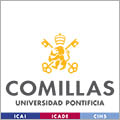Bachelor in Criminology with Psychology - Grado en Criminología y Psicología
-
Imparte:
-
Modalidad:Presencial
-
Precio:Unlimited number of Scholarships available for next academic year
UK/ROI/Channel Islands: £9,535 per year
International: £19,635 per year -
Comienzo:Septiembre 2026
-
Lugar:Royal London House, Christchurch Road
Dorset (Bournemouth) BH1 3LT
Reino Unido -
Duración:3 Años
-
Titulación:BA (Hons) Criminology with Psychology
Explore crime and deviance from a criminological perspective whilst developing your knowledge in psychology. Draw on different perspectives as you explore human behaviour and consider societal responses.
104 to 120 tariff points (A-Level grades BCC to BBB) including a minimum of 2 A-Levels or equivalent qualifications, including BTEC Extended Diploma (grade DMM) and T-Levels (Merit).
International entry requirements:
If English is not your first language, you will need IELTS (Academic) 6.0 with a minimum of 6.0 in reading or writing and 5.5 in all other components or equivalent.
Study a fascinating combination of criminology and psychology units that will provide different perspectives on the motivations behind human behaviour, both individually and collectively.
Decide your focus by choosing units in your second and final year to create a bespoke degree to reflect your personal interests or career aspirations.
Learn from research-active social scientists in fields including sociology, social anthropology, criminology and psychology.
Choose from either a 30-week ‘sandwich’ placement or a shorter four-week placement to provide you with important work experience.
Develop your own research based on a topic that interests you or aligns itself with your future career or study plans, in your final year dissertation.
Gain a degree that will equip you with the skills and knowledge that employers are looking for - within 15 months of finishing their course, 90% of our students are in work or further study.
Sport & Leisure Cultures
YEAR 1
Introduction to Criminological Theory: An introduction to key sociological, psychological and criminological theory that has informed classical and contemporary criminology, engaging with key criminological thinkers and perspectives. You’ll evaluate theories within historical and contemporary social constructs and will consider the role of structure and agency with regards to criminality and deviance.
Development, Health & Psychological Disorders 1: Provides in-depth analysis of human development as well as introducing topics such as autism, prosopagnosia (face blindness), dyslexia and dementia.
Becoming a Social Scientist: This unit aims to help you transition from school or college to university-style work and the skills needed to achieve at university. You will use the skills learnt in lectures to carry out a small group project.
Introduction to Social Research: Offering a broad introduction to the conceptual and theoretical framework of social scientific approaches to research, this unit will provide the opportunity for you to consider ethical, practical and methodological issues. You’ll explore the parameters and scope of social scientific enquiry, focusing on the relationship of individuals to society, and will gain the skills to develop your own social scientific research plan.
Crime and the Criminal Justice System: You’ll explore the concepts of crime, the discipline and study of criminology and the structure and responsibilities of the key agencies within the criminal justice system, especially in the United Kingdom (UK), but with scope for international comparison of approaches to crime, policing, criminal justice and penology in developed and less developed societies. Considering specific case studies will allow you to reflect on differing approaches to addressing these fields of crime through policing and punishment.
You, Me & Us: Social Psychology and Individual Differences 1: Discover the ways in which human behaviour is affected by the social context in which it occurs and how behaviour differs between individuals.
YEAR 2
Qualitative Research Skills: The unit will equip you with the knowledge and skills to be able to carry out and analyse qualitative research. You’ll gain the knowledge of the skills necessary for effective design, implementation, and data analysis in qualitative research.
The Impact of Crime: Examine the various forms of crime, particularly criminal acts within relationships, as well as sex offending and sex work. Alongside the established ‘legal’ definitions of crime, you’ll also explore the broader concept of social harm and related theoretical frameworks such as zemiology, environmental criminology and risk society. Consider the obvious and less obvious ‘costs’ and impact of crime and harm on individuals, on communities and on society at large, as well as the role and impact of the media on social attitudes and stereotypes, which might determine how we perceive crime and harm.
Quantitative Skills: Develop your understanding and evaluation of a range of quantitative methods and the underlying philosophical and ethical principles of their application within social science research. This unit will assist you in your preparation for your final year dissertation.
Applying Psychological Theories to Forensic Psychology: Further your knowledge and understanding of the concepts and principles of developmental psychology. You’ll gain an understanding of the ways in which psychological knowledge and theory is applied in forensic investigation contexts, and how you may be employed in these areas.
OPTION UNITS (CHOOSE TWO)
Policing & Society
Youth Crime, Gangs & Youth Justice
Human Trafficking & Criminality
Growing up & Growing old
Crime, Health & Society
Globalisation, Justice and Global Instabilities
Doing Ethnographic Research in the Social Sciences
Contemporary Social Theory
Culture: Socio-Legal Perspectives
You, Me & Us: Social Psychology and Individual Differences 2
Criminological Psychology
Being Human in a Posthuman World
FINAL YEAR
Dissertation: The dissertation provides you with an opportunity to demonstrate your intellectual, analytic and creative abilities through sustained independent work. Specifically, it aims to provide an opportunity for critical in-depth review of the research literature within the broad parameters of criminology, psychology, sociology and/or social anthropology, and to enable students to apply this knowledge in the development of a research proposal.
Criminology of Organisations: This unit will introduce you to organisational crime and how this type of crime is currently being policed and regulated through means of law and social control. You’ll explore critically the reasons why only a small percentage of this type of crime is prosecuted and adjudicated by the criminal justice system.
Investigative Forensic Psychology: This examines current research at the forefront of knowledge exploring the application of psychology in forensic contexts.
OPTION UNITS
Drugs, Crime & Society
Seekers, Believers & Iconoclasts
Terrorism, Protection & Society
Intersectional criminology
Troubling gender
Crime & criminal justice in the 21st Century
Politics & Ideology
International Interventions & Humanitarianism
Psychology of Social Media & Video Games
Forensic Applications for Face Processing
Cultural Psychology
Cybersecurity & Cyberwarfare
Capitalism’s crimes, contracts, & crises. Decolonial perspectives in the social sciences
Social services
Criminal justice
Community work
Police
Prisons
Probation services
Education
Government and civil service
Counselling charities and the voluntary sector
International development and aid
Marketing and policy research
Corporate management
Journalism and media




